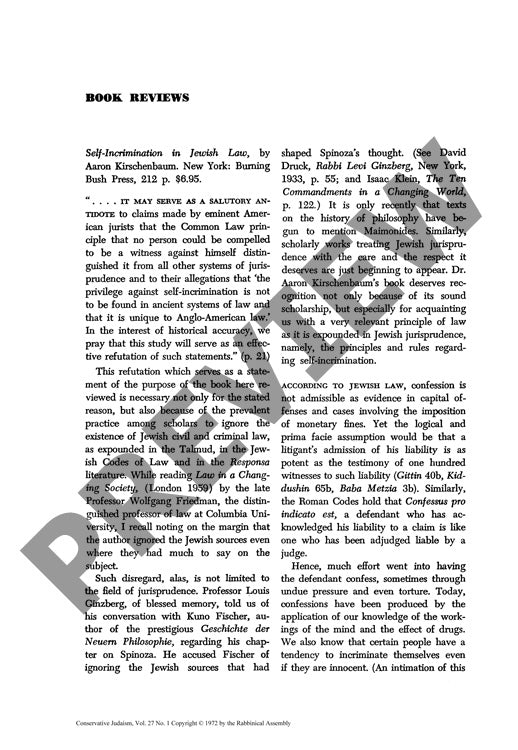Book Reviews
Couldn't load pickup availability
The privilege against self-incrimination, far from being a uniquely Anglo-American legal innovation, found robust expression in Jewish jurisprudence as early as Tannaitic times. Aaron Kirschenbaum's "Self-Incrimination in Jewish Law" dismantles longstanding claims by American jurists through meticulous analysis of historical records and legal texts. Drawing from Talmudic sources, Jewish legal codes, and Responsa literature, Kirschenbaum reveals how Jewish law established foundational principles prohibiting self-incrimination in both capital offenses and monetary cases. His comprehensive comparative analysis spans Roman law, Canon law, French, Anglo-American, and Russian legal systems, while addressing seemingly contradictory biblical cases of confession. The research illuminates how Jewish law's rejection of confessional evidence emerged from deep-seated principles: individuals cannot render themselves wicked and are considered kinsmen unto themselves. These protections extended beyond their original Talmudic applications, developing intricate standards for corroboration and testimonial disqualification. While modern Israeli courts face challenges in reconciling traditional Jewish jurisprudence with contemporary legal practice, Kirschenbaum's scholarship fills a critical gap in Jewish legal history and definitively establishes the ancient origins of these fundamental legal protections.

More Information
-
Physical Description
-
Publication Information
Published 1972
ISBN
-
Publication Credits

